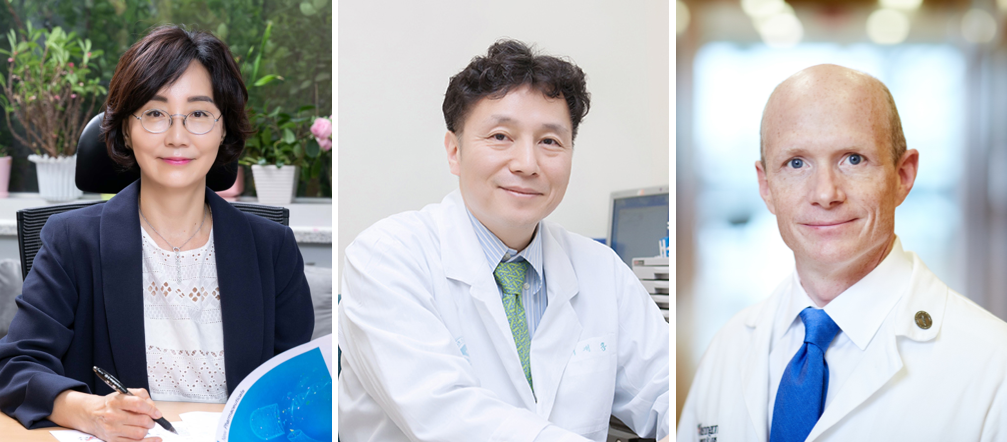배경 영역입니다.
치매극복연구개발사업단
- About KDRC
-
Studies from KDRC
- Studies from KDRC
- Studies from KDRC
- Direction & Process
- Board
전체메뉴
전체메뉴 닫기-
About KDRC
-
Studies from KDRC
-
Direction & Process
-
Board
Board
To become the leading country for dementia treatment and prevention through continuous development of core technologies
Notice
|
|
|---|---|
KDRC - Asan Medical Center - Dominantly Inherited Alzheimer Network Memorandum of Understanding Agreement
-DIAN-Koreare-promotion for treatment and prevention of dementia-
Korea Dementia Research Center (KDRC) is pleased to announce it has signed a memorandum of understanding with Asan Medical Center (AMC) and Dominantly Inherited Alzheimer Network (DIAN).
The
three organizations will work together to re-promote DIAN-Korea and to share
data on patients and research and to participate in international clinical
research.
Based
at Washington University School of Medicine in St. Louis, USA, DIAN is an
international consortium launched in 2008 to find solutions to treat or prevent
the Dominantly Inherited Alzheimer’s disease (DIAD) and, potentially, all form
of Alzheimer’s. DIAD is a rare form of Alzheimer’s that causes memory loss and
dementia in individuals ― typically while they are in their 30s to 50s. The
disease affects less than 1% of the total population of people with
Alzheimer’s.
In
2015, AMC participated in DIAN with the assistance of the Korean government and
conducted international collaborative research. In 2021, AMC was nominated for
the Korea Health Technology R&D Project, and DIAN-Korea was re-promoted.
AMC
plans to track various biomarker changes of the patients and families suffering
from DIAD through cognitive function, MRI, PET, blood, and cerebrospinal fluid
tests every one to two years.
Professor
Jae-Hong Lee, Principal Investigator & Neurologist at AMC, said: “The study
of DIAD can be expanded to future therapy research aimed at controlling
Alzheimer’s disease even before clinical symptoms occur in the field of
Alzheimer’s disease which lacks fundamental care. If all generation related to
you have a familial Alzheimer’s disease, it is important to check whether you
carry the disease through genetic tests.”
Professor
Inhee Mook-Jung, Director of KDRC, said: “There are very few patients suffering
from Alzheimer’s disease due to genetic factors, but the study of these
patients can greatly contribute to identifying the causes and progress of the
late-onset Alzheimer’s disease. The collaborative research with DIAN could
provide more patients and research data, which allow us to take a step closer
to developing prevention technologies as well as early diagnosis and treatment
of dementia.”
Professor
Randall J. Bateman, Director of DIAN, said: “DIAN is a global
international effort to identify the causes of Alzheimer’s disease, and ways
that Alzheimer’s can be stopped. The DIAN-Korea will support research for
Korean families who have DIAD, and contribute to understanding and
breakthroughs that will improve the diagnosis, treatment, and prevention of
Alzheimer’s disease. These efforts will
be enabled with national support of DIAN-Korea and a commitment to
collaboration by the Korean doctors and researchers of Korean DIAD families.
The DIAN global community welcomes DIAN-Korea.”
|
|
